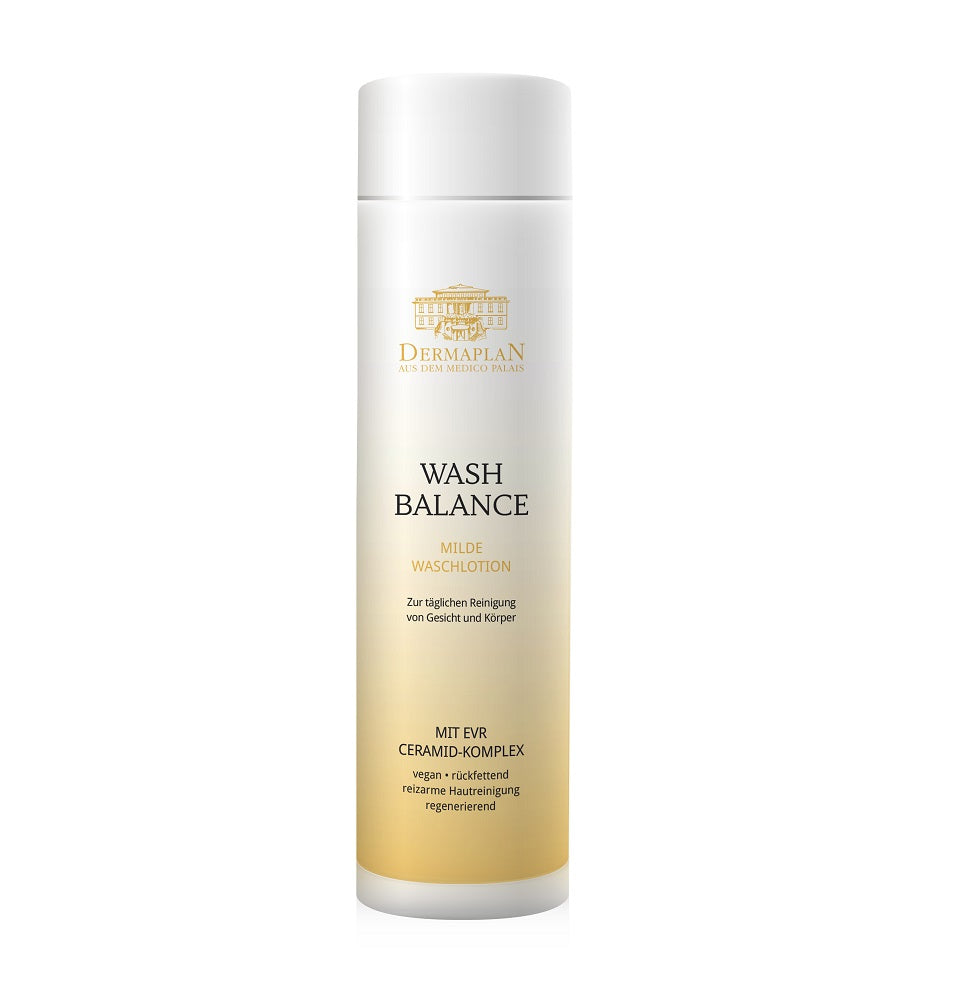ITCHING AND ITCHY SKIN
What is itching?
When we itch (medically known as pruritus), our itch nerves transmit information to various parts of the brain, triggering a discomfort on the skin – the unpleasant sensation of "itching." The skin perceives this signal, and the urge to scratch arises. However, itching can also be a healthy protective mechanism of the skin , which detects potentially dangerous foreign bodies on the skin's surface. The mechanical friction is intended to remove intruders such as insects or harmful plants from the skin.
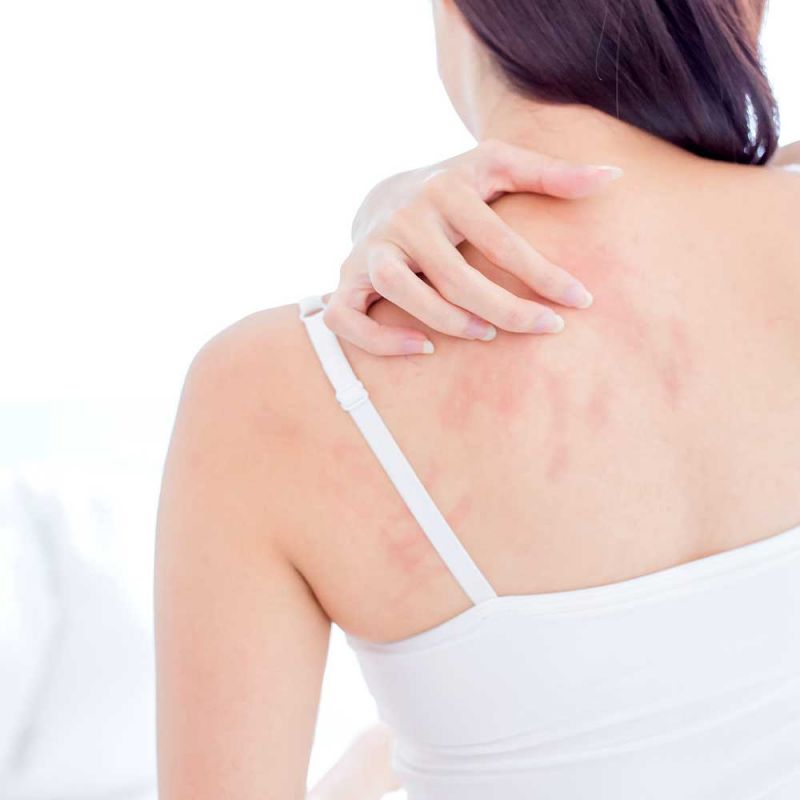
How does itching occur?
It was long suspected that itching is triggered by the same nerve endings that trigger pain. However, new findings suggest that it involves a distinct subgroup of nerve fibers that are stimulated by certain neurotransmitters (e.g., histamine and serotonin), thus triggering the sensation of itching.
Itching can be caused by toxins, allergies, mechanical stimuli, insect bites, temperature fluctuations, or skin diseases such as atopic dermatitis or psoriasis. The irritation then leads to the release of histamine from the cells, resulting in "itching." This can occur in specific areas of the body (localized) or over the entire body (generalized).
Scratching creates pain stimuli that mask the itching and provide relief – but only temporarily. Long-term, uncontrolled scratching leads to skin changes such as irritation, inflammation, rashes, and painful, flaky skin. The now damaged and weakened skin barrier becomes even more vulnerable to aggressors and inflammation.
The constant mechanical stimulation of the skin releases messenger substances, which in turn promote itching – a vicious circle of “itch-scratch-itch” is created.
Severe, chronic itching all over the body often becomes a strain for those affected: it leads to sleep deprivation, exhaustion, scratch marks on the skin, and a constant urge to scratch for relief. For some sufferers, constant itching with no prospect of relief even leads to psychological problems.
What causes itching?
Itching can have many causes. However, it is often triggered by a skin condition. If the skin is visibly inflamed in addition to itching, a skin condition is the underlying cause in approximately 42% of cases. However, other factors can also accompany itching.
The most common causes of itching
Itching due to skin reactions and skin diseases
-
Allergies
Contact with the allergenic substance causes the release of histamine, resulting in itchy pustules and swelling on the skin.
-
Atopic dermatitis
A common symptom of atopic dermatitis is itching. In the "typical" skin areas (e.g., the insides of the elbows, backs of the knees), the skin barrier is disrupted, and the skin becomes irritated, cracked, scaly, and itchy.
-
Psoriasis (psoriasis)
With psoriasis, scaly and very itchy skin patches develop, preferably at the hairline, elbows and/or knees.
-
Eczema and hives
Urticaria
These manifest as pustules, crusts and pruritus (itching).
-
Candidiasis
The infection with skin fungus causes itchy redness of the skin, which can have an unpleasant smell, especially in the skin folds.
-
Xeroderma
Here, the skin becomes dry and brittle due to reduced sebum production. This can result in increased itching.
-
Parasites
Scabies (itch mite) in particular robs many people of their sleep due to nightly itching.
-
Autoimmune diseases
such as bullous pemphigoid, pemphigus vulgaris, lichen planus or light eruption
These can manifest themselves through a variety of symptoms, including itchy skin.
-
Aquagenic pruritus
Contact with water or changes in air temperature triggers a stinging itch.
-
Age-related itching
Senile pruritus
With age, the function of the skin's protective barrier declines. The skin can no longer retain moisture sufficiently. Furthermore, external aggressors have an easier time penetrating the skin. This leads to aging skin becoming significantly drier and more likely to cause itching all over the body.
-
Dry skin
A lack of moisture retention in the skin, flaky skin due to flaking of the summer tan, too frequent showering/bathing or the use of drying skincare products can cause increased itching.
-
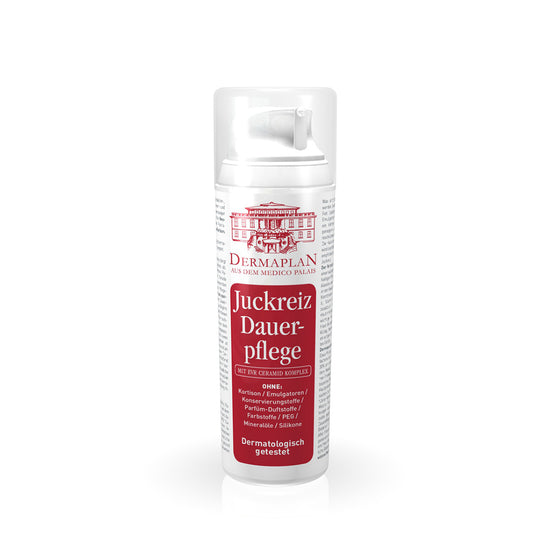
To the productItching permanent care
Itching caused by environmental factors
-
Toxins
These can be released onto the skin by an insect bite (e.g. a mosquito bite), by plants (e.g. contact with nettles), chemicals or parasites (e.g. a flea bite) and cause severe itching and often pain.
-
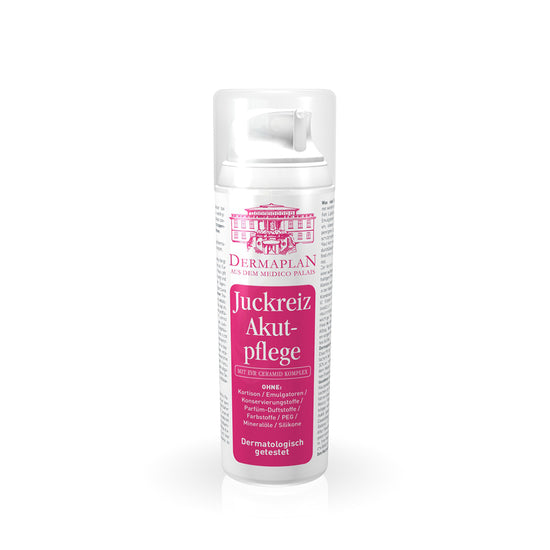
To the productItching Acute Care
-
Temperature fluctuations
Sudden temperature changes between cold and warm can cause dryness in sensitive skin. Dry, dehydrated skin is more prone to itching. Especially in winter, the skin is exposed to drastic temperature fluctuations: freezing cold outside, and overheated air inside.
Itching due to internal diseases
-
Kidney disease
Patients with severe kidney disease who undergo dialysis often experience severe, generalized itching shortly after treatment. However, the exact causes are still unclear.
-
Liver diseases
Disturbances in bile flow (cholestasis) or liver damage, such as liver cirrhosis, cause an increase in the bile pigment bilirubin. This not only leads to the typical yellowing (jaundice) of the skin and mucous membranes, but also to increased, severe itching.
-
Diseases of the blood and lymphatic system
Hodgkin's disease: Itching all over the body or just in the lymph nodes can precede a malignant tumor of the lymphatic system years ago. Aquagenic pruritus, like the excessive production of blood cells, is also the first sign of this condition. Iron deficiency: Chapped corners of the mouth, brittle hair, brittle nails, and dry, itchy skin are also early signs.
-
Tumors
In cancer, itchy skin can occur due to treatments (e.g. radiation or various medications).
-
Metabolic disorders and hormonal diseases
Thyroid disease: With hyperthyroidism, warm, itchy skin is very common. However, with hypothyroidism, itching is rare. Hormonal fluctuations, such as during pregnancy, menstrual cycles, or after menopause, can increase itching.
-
Diabetes mellitus
Itchy skin can be caused by nerve damage (neuropathy) or increased susceptibility to fungal skin infections.
-
HIV infection
The weakened immune system promotes the development of skin diseases caused by fungi or parasites, which may be inconspicuous but accompanied by severe itching. Pruritus can also be triggered by antiviral therapy.
-
Neurological diseases
Damage to the central nervous system (multiple sclerosis, polyneuropathies or viral diseases such as herpes zoster) can cause an itchy sensation on the skin.
-
psyche
Depression, obsessive-compulsive disorders such as obsessive-compulsive disorder or hallucinations can be responsible for severe itching.
-
Infectious diseases
Increased itching of the skin is triggered by chickenpox and measles. Itching can also be triggered by side effects of medications. This is often the case with antibiotics, psychotropic drugs, antihypertensive drugs, or anticoagulants, for example. AIDS patients are also familiar with this problem, as antiviral therapy also often triggers itching.
-
insect bite
Itchy skin after an insect bite or due to an allergic reaction is extremely unpleasant for those affected, but usually goes away on its own after a short time. After initial, vigorous scratching, the itching subsides and eventually disappears completely. This is not a reason to see a doctor, however. However, if itching persists for no apparent reason, a specialist should be consulted.
A doctor should be consulted if:
• the pruritus occurs for an unusually long time and without any apparent reason all over the body
• Symptoms such as fatigue, tiredness or fever may occur
• the skin shows changes.
-
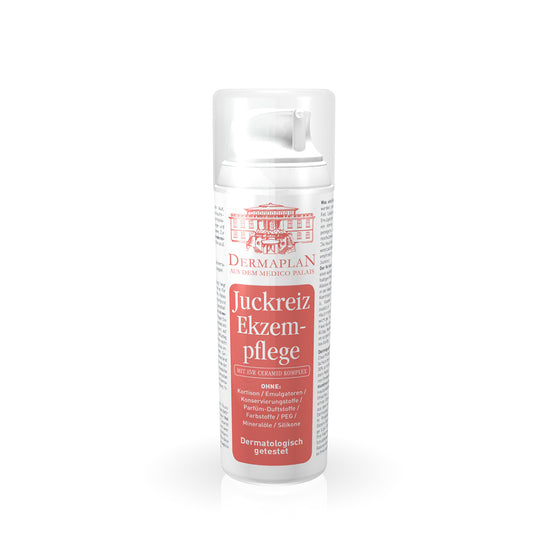
To the productItching eczema care
What really helps against painful itching?
DERMAPLAN has developed a special itch care product for itchy skin that helps relieve itching and effectively breaks the itch-scratch cycle.
Often, an overly greasy cream containing emulsifiers and fragrances is used to treat itching and inflamed skin. However, the overheated and inflamed skin cannot breathe sufficiently under this airtight layer of fat. Furthermore, the emulsifiers in the creams deprive the skin of much-needed moisture. The skin dries out, and the urge to scratch increases.
The ideal anti-itch cream is an allergen-free, effective treatment specifically for itching, without cortisone or emulsifiers. It offers effective skin care with lasting, long-term protection for acute and persistent itching.
Tips for proper skin care for itching
Cleanse your skin (face and body) morning and evening with a mild, gentle cleansing lotion . Also use a sensitive, alcohol-free facial toner to remove any remaining residue and improve skin texture. This will perfectly prepare your skin for subsequent skincare.
-
Depending on the type of itching, care for your skin with DERMAPLAN Itch Acute Care for acute itching, or with DERMAPLAN Itch Permanent Care for persistent itching. For skin care, especially for atopic dermatitis, itchy, sensitive skin, skin allergies with itchy irritations and redness associated with dry skin, and psoriasis, we recommend using our DERMAPLAN Itch Eczema Care . Always apply a thin layer of the anti-itch care. Chilling it in the refrigerator beforehand can further increase its effectiveness.
-
Once the desired itch relief has been achieved through the application of the acute care product, it is advisable to continue treating your skin with DERMAPLAN basic care (Lipid Balance 1-3) . This will sustainably regenerate the skin's protective barrier and prevent further flare-ups of itching.
For our DERMAPLAN products, the principle of "more is better" doesn't apply. Because of their high-quality ingredients, the products are very effective and can therefore be applied thinly and sparingly.
-
All DERMAPLAN products work:
• without preservatives
• without animal ingredients
• without emulsifiers, without perfumes, without fragrances
• without mineral oils without dyes
• without silicones without PEGs
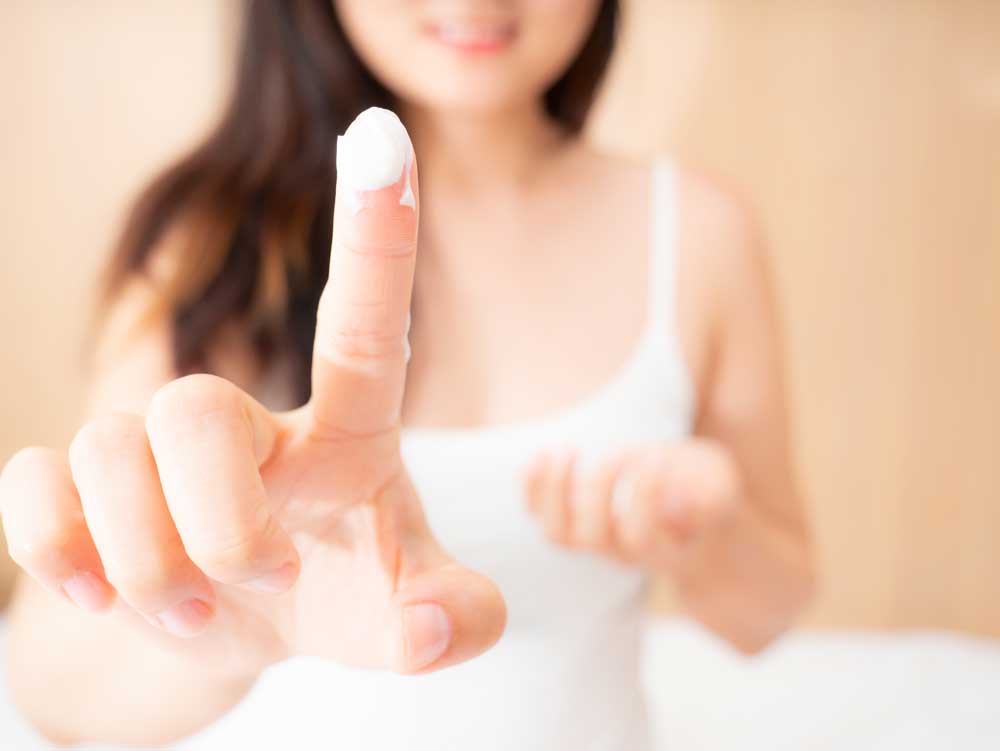
Little tip for your hands
Only clean your hands with an allergen-free, perfume-free wash lotion. Always rinse off the soap thoroughly after washing your hands, as soap residue can unnecessarily irritate the skin. Follow up with rich anti-itch care products for your hands. The rich Lipid Balance 3 is also ideal as a hand care treatment before bedtime.
Dermaplan
Dermaplan Itching Permanent Care
The soothing long-term care with approximately 42% lipids is adapted to the needs of itchy, very dry, rough and cracked skin as well as itchy aging skin and is also suitable for neurodermatitis and psoriasis.
Split
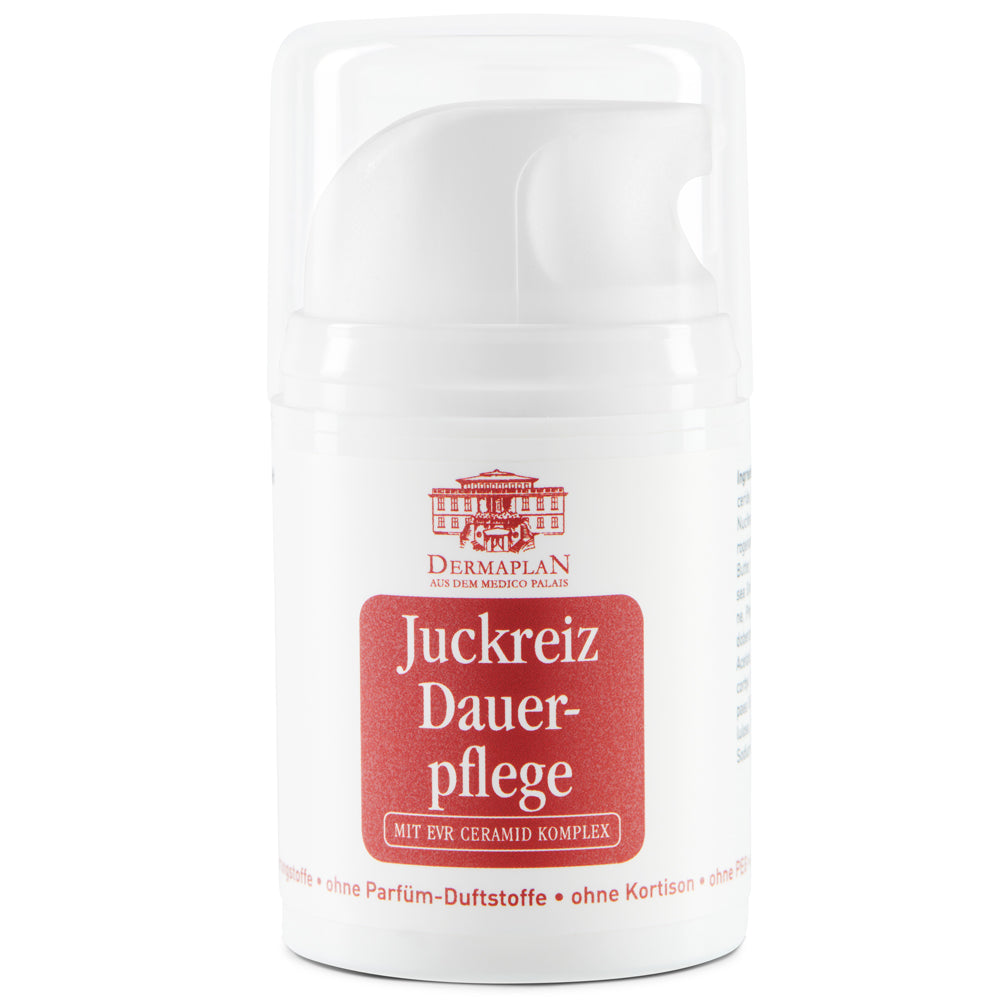
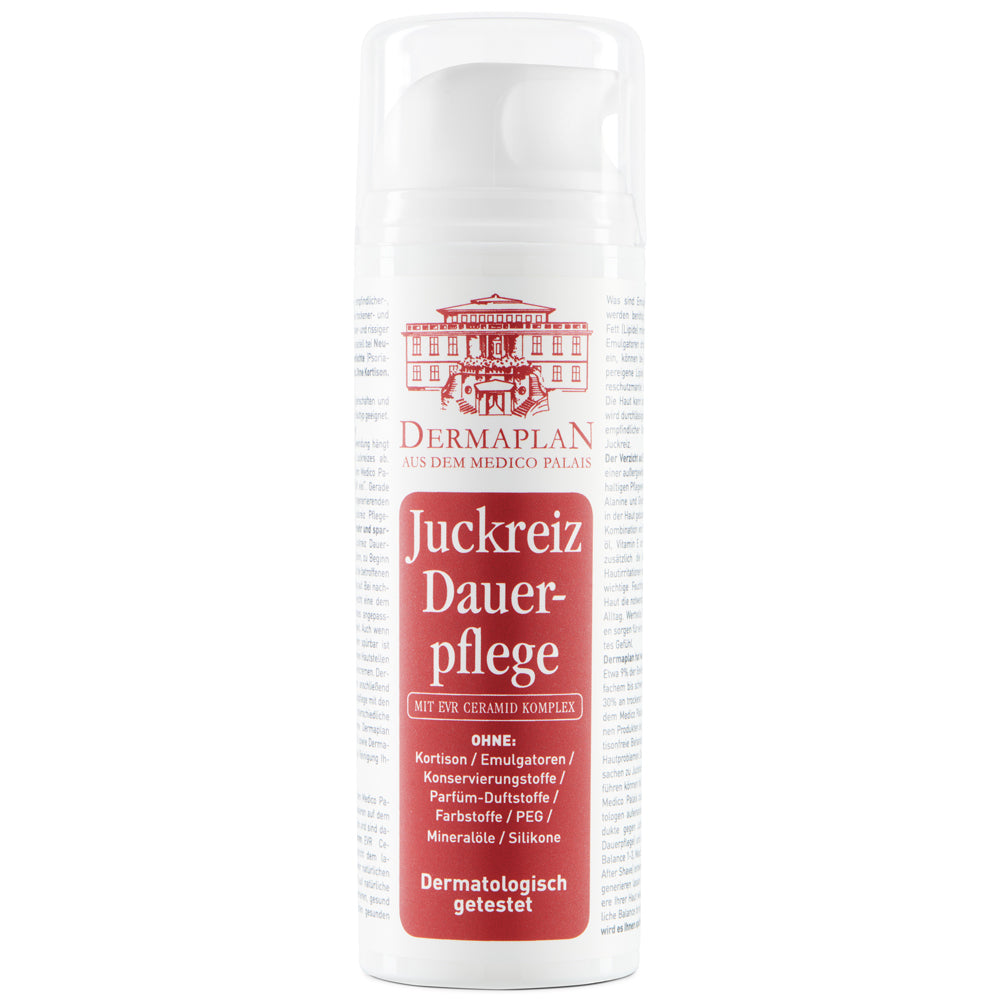
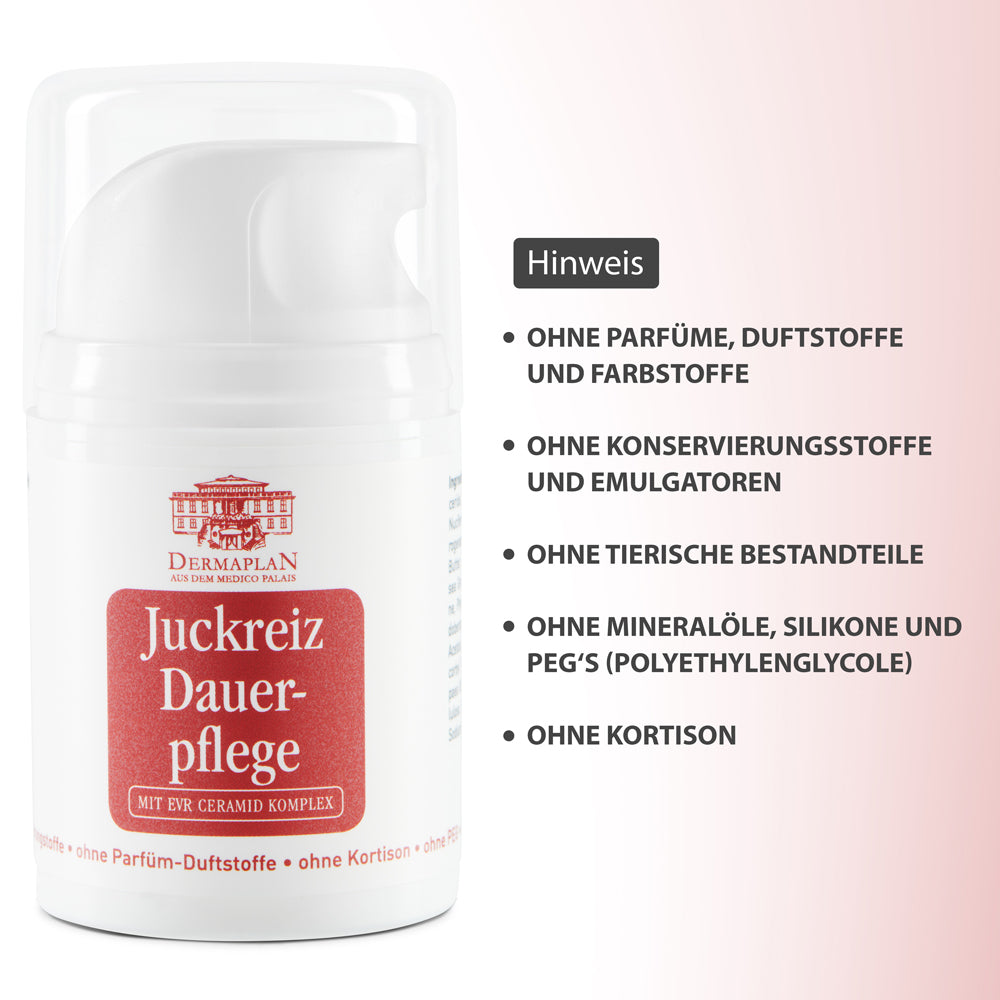
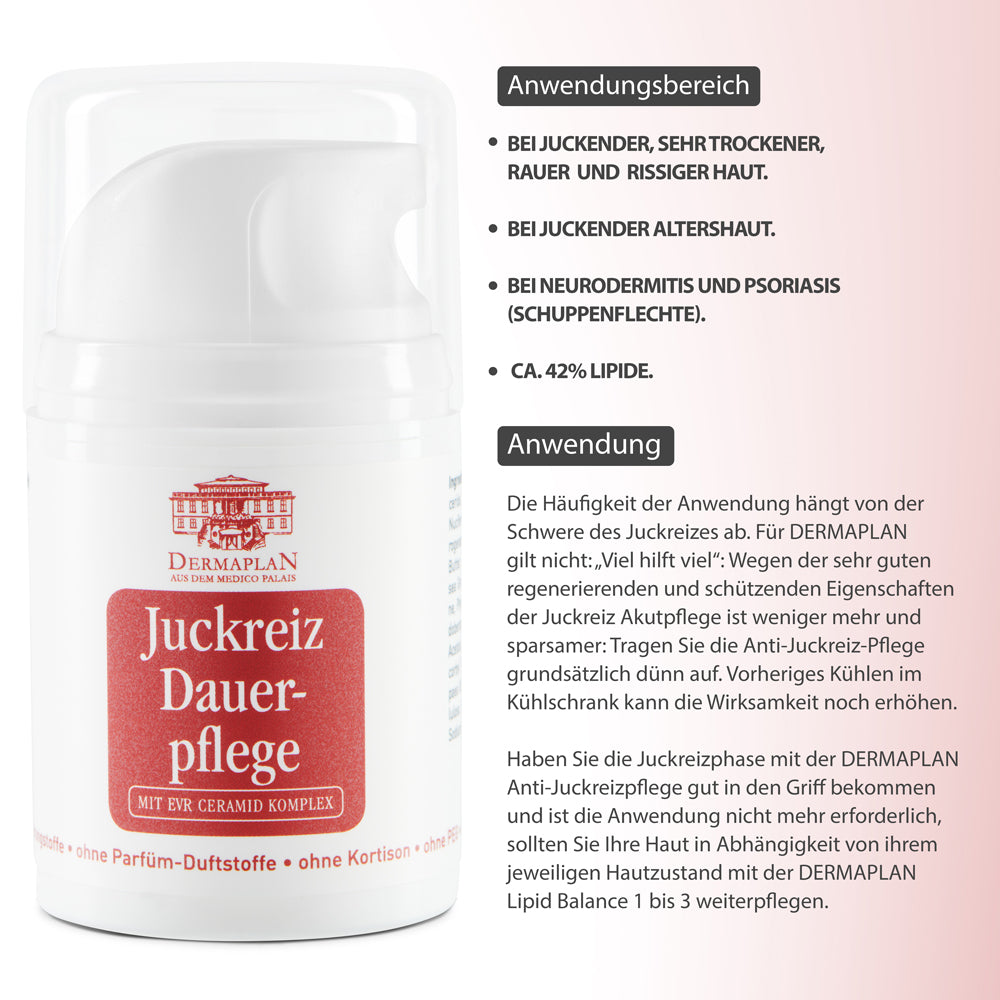
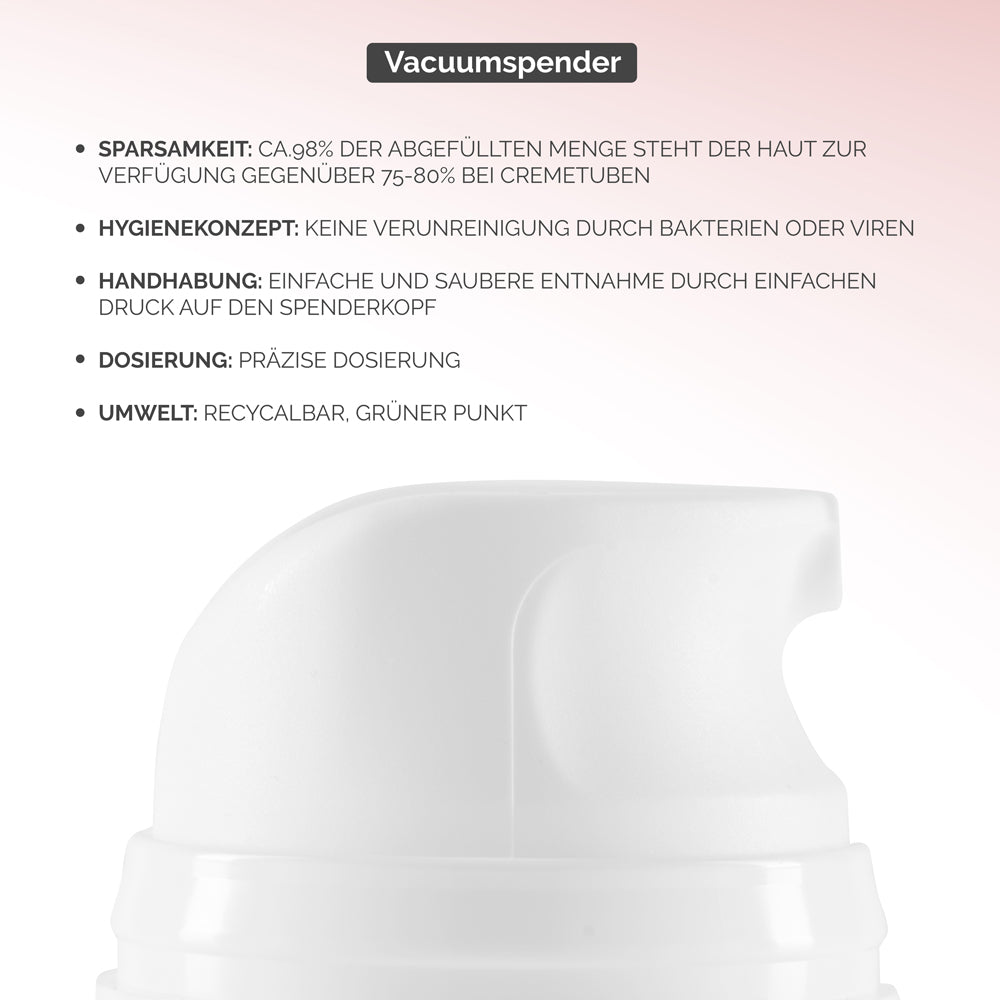
More tips to stop painful itching
Here are a few tips on how you can find relief and relief from itching in addition to proper skin care:
-
Avoid dry skin
If possible, avoid dry indoor climates, frequent showers, baths, saunas, and skincare products containing alcohol. Dry skin often also causes itchy skin. Showering and bathing particularly dry out the skin, so subsequent care is essential.
-
Avoid spicy food
Spicy foods heat up the body and cause excessive sweating. This can further irritate the skin. The same applies to excessive alcohol and coffee. These products also heat up our bodies and can trigger flare-ups of itching.
-
Avoid too much stress, excitement and anger
Your psychological state can influence the severity and frequency of itching attacks. Therefore, stay calm. Autogenic training, progressive muscle relaxation, or yoga not only help reduce stress but are also said to distract you from scratching, especially in cases of chronic pruritus.
-
Only lukewarm bathing
A bath in lukewarm water for a maximum of 20 minutes should replace a quick, overly hot shower. Be especially careful to avoid drying shower gels and bath additives. If you have skin conditions or severe scratches, gently pat your skin dry and do not rub it. Don't forget to follow with moisturizing, replenishing creams.
-
Moist compresses
If severe itching suddenly sets in, cool, moist compresses containing yogurt or quark can provide additional relief. Black tea compresses are also helpful.
-
Protect your skin from scratching attacks
Cotton gloves help and protect against sleep-scratching attacks. These are especially suitable for children.
-
Make sure you choose the right material for your clothing
Wear loose clothing that does NOT rub against the body or irritate the skin, for example cotton is recommended.
-
Avoid allergens
If an allergy is the reason for the itching, the only thing that helps is avoiding contact with the substance responsible for the itching.
